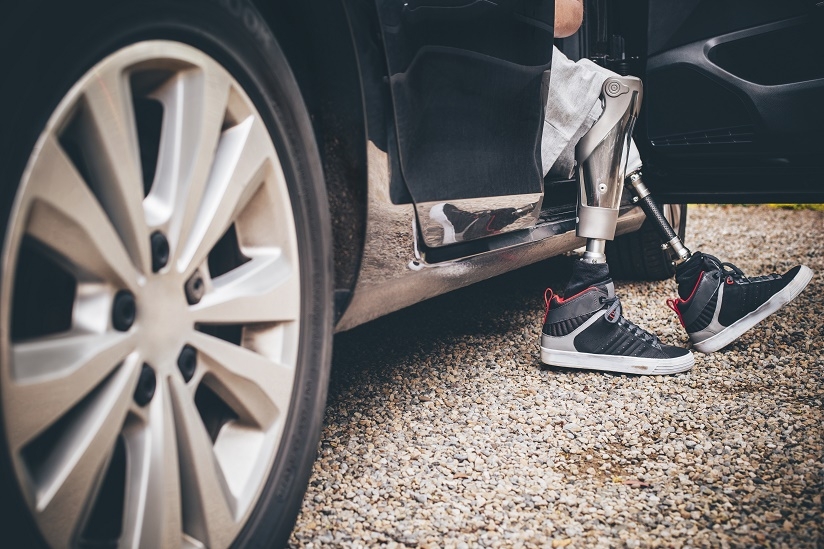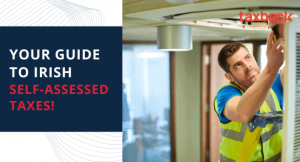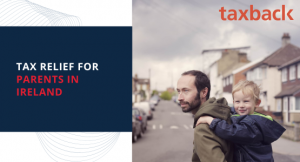Do you have a disability, or care for someone who does? Here are some important tax reliefs you should be aware of
More than half a million people in Ireland have a disability. We’ve put together a useful guide on tax reliefs for the disabled in Ireland
There are a number of tax credits, reliefs and allowances intended specifically to reduce the tax liability of people with disabilities.
It could be due to lack of awareness. Or it may be down to confusion on who qualifies. But the fact is that countless people who are entitled to avail of these reliefs miss out every year.
With this in mind, we’ve put together a handy guide to the tax reliefs and allowances that are available to people with disabilities in Ireland.
Medical expenses
Value Added Tax (VAT) Refunds
The Incapacitated Child Tax Credit
Visual Impairment
Dependent Relative Tax Credit
Tax Relief on Employing a Home Carer
Home Carer's Tax Credit
Drivers & Passengers with disabilities
Medical expenses
Medical expenses are a good place to start.
While this tax relief was not specifically designed with disabled people in mind, it is useful to know that you can get tax back on expenses relating to your disability.
All PAYE and self-assess workers who have medical expenses are entitled to claim back 20% of the cost as a refund, following the end of the tax year that the expense occurred.
Plus, you can also go back four years for your claim. In other words – if you have spent €200 on visits to the doctor and prescriptions every year for the last four years you will be entitled to a refund of €160.
And even if you get reimbursed by an insurance company for the cost of the medical expense, you can claim relief on any excess you have paid.
If you pay expenses on behalf of another person you may also be entitled to claim tax relief. You may also qualify if the person is living in a nursing home or hospital and you contribute to the fees.

Qualifying expenses include:
- Doctors' bills
- Consultants’ fees
- Maintenance or treatment in hospital
- Prescribed drugs and medicines.
- Treatment in a hospital or a nursing home
- Speech and language therapy
- Ambulance
- Educational psychological assessments
- Certain items for a child suffering from life threatening illness
- Kidney patient expenses (up to a max amount)
- Specialised dental treatment
- And more
- Drugs and medicines
- Diagnostic procedures
- Orthoptic or similar treatment
- Hearing aids
- Orthopaedic bed or chair
- Wheelchair or wheelchair lift
- Glucometer machine for a diabetic
- Engaging a qualified nurse in the case of a serious illness
- Physiotherapy, chiropody/podiatry services or similar treatment
- Cost of a computer that is necessary to help a person with a severe disability to communicate·
- Cost of gluten-free food for coeliacs
The average Irish tax refund is €1,880
Value Added Tax (VAT) Refunds
Do you use an aid or appliance to help with daily activities due to a disability?
If you are living in Ireland with a disability (physical or mental), you may be entitled to a refund of Value-Added Tax (VAT) on special aids and appliances that you need. And, in some cases, a person who pays for aids and appliances for someone with a disability can also claim this refund.
Some examples of allowable aids and appliances include:
• Domestic aids, for example, eating and drinking aids
• Walk-in baths
• Commode chairs
• Lifting seats and specified chairs
• Braille books
• Hoists and lifts, including stair lifts
• Communication aids
It's important to note that refunds will only be granted on aids and appliances that are purchased (not rented) and no refunds are granted on services.
Visual impairments
If you have a visual impairment, you can claim VAT refunds on aids and appliances which are designed to help a blind person cope with daily functions (for example, specially adapted computer equipment, Braille books, Braille writing equipment, etc.).
Dyslexia
Primary and secondary schools that have students who have significant dyslexia (whose literacy skills are at the 2nd percentile or lower) can apply to the Special Educational Needs Organisers (SENO) for a computer/laptop and any specialist software needed by an individual student.
And, if a parent buys a computer or software for a child with dyslexia for home or personal use, the VAT can be claimed back.
Housing adaptations
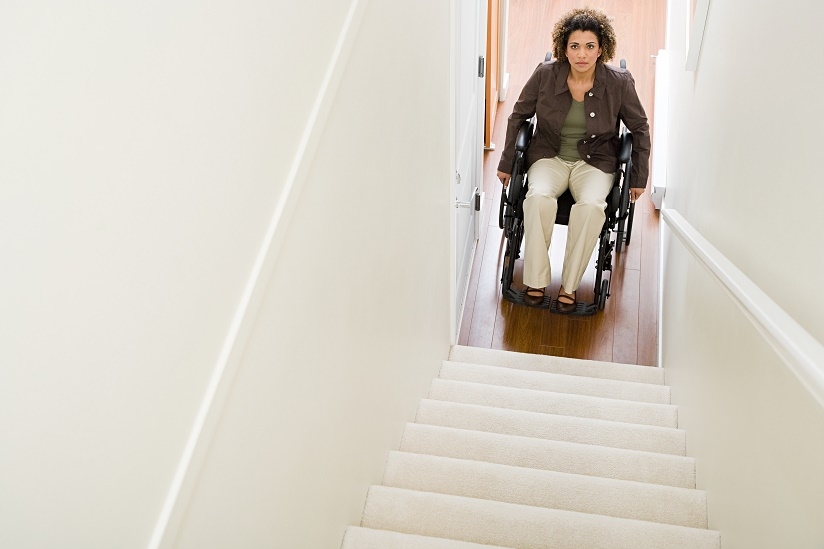
Have you carried out adaptation or installation work on your home to make it more suitable for an older person or for a person with a disability? If so you can apply for a VAT refund.
There are also some grants that you can apply for which may help you with your housing adaption. These include the Housing Adaptation Grant for People with a Disability, the Mobility Aids Grant Scheme and the Housing Aid for Older People Scheme.
The Incapacitated Child Tax Credit

Aside from VAT refunds, there are also a number of tax reliefs that you can claim if you or your loved one has a disability.
The Incapacitated Child Tax Credit is one example. Worth €3,300 in 2018, this credit is for parents and guardians who have a child that is permanently incapacitated (either physically or mentally).
To qualify, your child must have became incapacitated before the age of 21. If it was after the age of 21, they must have been still in full-time education or while training for a trade or profession for a minimum of 2 years.
You can also claim the credit for a stepchild, an adopted child or any child you have custody for, who is maintained at your own expense.
You can also claim more than one credit if you have more than one qualifying child. If one parent is maintaining the child, that parent is entitled to claim the full amount of the tax credit. However, if more than one parent is maintaining the child, the tax credit is divided between them in proportion to the amount paid by each towards the cost of caring for the child.
To qualify for this credit, the disabilities that are regarded as permanently incapacitating include:
• Cystic Fibrosis
• Spina Bifida
• Blindness
• Deafness
• Down Syndrome
• Spastic paralysis
• Certain forms of schizophrenia
• Acute autism
Note: you will not be entitled to the credit if the cost of maintaining your child is fully paid for at public or charitable expense.
Visual Impairment
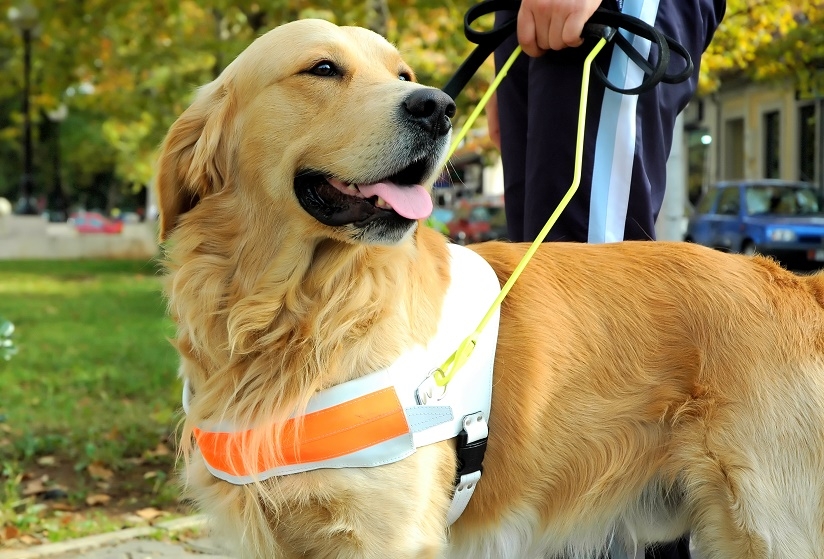
If you have certain visual impairments you may claim a reduction in the amount of tax that you pay.
Blind Person's Tax Credit
The Blind Person's Tax Credit is worth €1,650 for 2018 (€3,300 for a married couple or civil partners where both spouses or civil partners are blind).
To apply for the blind person's credit you will need a certificate from an ophthalmic surgeon stating:
• that your best vision does not exceed 6/60 visual acuity in the better eye with corrective lenses
or
• that the widest diameter of your visual field subtends an angle no greater than 20 degrees
and
• whether the visual impairment is permanent, or temporary (if it is temporary, you will need a certificate for each year for which the credit is claimed, otherwise the tax credit remains indefinitely)
It's important to note that if you are a parent and you have a child who is blind you can't claim a Blind Person's Tax Credit. But you can claim an Incapacitated Child Tax Credit instead.
Guide Dog Allowance
If you have a trained guide dog, an additional allowance may be available to you. The allowance in 2018 is worth €825.
Dependent Relative Tax Credit

You can claim the Dependent Relative Tax Credit if you care for and maintain at your own expense:
• A relative, including a relative of your spouse or civil partner, who is unable to maintain himself or herself as a result of old age or ill-health
• A widowed parent or surviving civil partner parent of either yourself or your spouse or civil partner, irrespective of the state of their health
• A son or daughter of either yourself or your spouse or civil partner who lives with you and on whose services you must depend as a result of old age or ill health.
As of 2020, the tax credit is the cost of maintenance up to €70 per year (this has been increased to €245 in Budget 2021). Although, if the income of your dependent relative (for example, social welfare payments, pensions and deposit interest) exceeds €15,060 in 2020, you will not be entitled to this credit.
Tax Relief on Employing a Home Carer
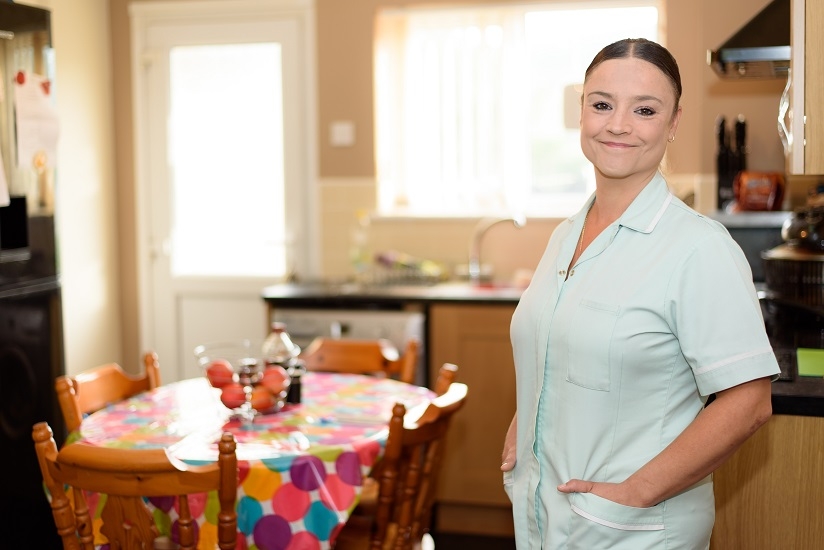
It's possible to get this relief if you employ someone to take care of yourself, your family member, your spouse or civil partner, your relative or a relative of your spouse or civil partner who is totally incapacitated due to physical or mental infirmity. Your relative includes any person to whom you are, or have been, a legal guardian.
However, you can't claim this credit and The Incapacitated Child Tax Credit or The Dependent Relative Tax Credit.
How much can be claimed
The amount that can be claimed is the lower of:
• the actual cost of employing a carer
• €75,000* for each incapacitated person
*In 2013 and 2014, the limit on the relief was €50,000
You can claim relief in the first tax year that you prove you or a relative are totally incapacitated by physical or mental disability.
If two or more people pay for the cost of employing a carer, the total relief they receive can't be more than the yearly limit. Also, the relief granted to each cost payer will correspond to the costs they have paid.
For example, Michael and his brother Anthony employ a carer for their mother. She has been totally incapacitated since 1 January 2016. Together with their mother, the brothers decide that they need a carer to assist them with looking after their mother.
In 2016, the cost of employing the carer is €7,500 per month. The brothers decide to split this cost equally between them - Michael pays €3,750 and Anthony pays €3,750. The total employment costs for the year are €90,000.
The maximum relief they can receive for 2016 is €75,000 and both brothers are entitled to €37,500.
Providers or agencies
Relief is also available from Revenue on the cost of care service providers or agencies, such as charitable or voluntary organisations and commercial organisations that provide home care services.
It's advisable to use an agency that employs carers. If you choose to employ your own carer, you will have to register as an employer and handle their PAYE, USC, PRSI, contract, payslips, holidays and hours of work.
Restrictions
There are some restrictions to this relief.
For instance, you can't claim relief for employing a carer as a housekeeper only. It's also not possible to claim relief for funding you receive from the Health Service Executive (HSE) or a local authority for employing a carer.
The average Irish tax refund is €1,880
Home Carer's Tax Credit
Married couples (who are jointly assessed for tax) can qualify for a Home Carer Tax Credit provided one spouse or civil partner works in the home caring for a dependent person.
Budget 2018 saw the value of the credit rise to €1,200. It had been worth €1,100 in 2017.
The home carer's own income must be under €7,200, but a reduced tax credit applies if the carer's income is between €7,200 and €9,400.
In order to qualify for the Home Carer's Tax Credit, a dependent person is considered:
• a child who is eligible for Child Benefit
• a person aged 65 or over
• a person with a disability who requires care
However, a dependent person you are caring for can't be a spouse or civil partner. But they can be a relative by marriage, or someone for whom you act as a legal guardian.
Usually, the dependent person has to live with you during the tax year in order to eligible for this credit. However, if the person is not living with you, they must instead live either in a neighbouring residence, or within 2 km of your home. There must also be a direct communication link between you – for example a telephone line or alarm system.
Drivers & Passengers with disabilities
Disabled Drivers and Disabled Passengers Scheme
This scheme provides a range of tax reliefs for the purchase and use of specially constructed or adapted vehicles by drivers and passengers with a disability.
Under the terms of the scheme, you can claim remission or repayment of vehicle registration tax (VRT) and repayment of VAT on the purchase of a vehicle and on the cost of adapting a vehicle.
Should you qualify under the scheme, your vehicle may also be exempt from the payment of annual motor tax on application to a Motor Tax Office.
The limit on the vehicle's engine size can't exceed 6,000cc for drivers and passengers. And the maximum amounts of VRT and VAT relief that can claimed are €10,000, €16,000 or €22,000 depending on the level of adaptation, as below:
• €10,000 for drivers. €16,000 for passengers
• Where the vehicle has been specifically adapted for drivers with severe disabilities and it needs significant adaptation the maximum amount of relief is €16,000. However, the vehicle must be retained for 3 years
• When the cost of the required adaptions exceeds the open market selling price of the vehicle being adapted, the maximum amount of relief available is €22,000. And if you avail of this relief the vehicle must be retained for 6 years
In order to qualify for tax relief under the scheme, the person with a disability must be:
• a disabled driver with a primary medical certificate (PMC)
• a disabled passenger that has a PMC
• a family member of a disabled passenger residing with, or responsible for, the transportation of that disabled passenger
Registered charities that are involved in the care and transport of disabled persons can also qualify.
Fuel grant
If you qualify for the Disabled Drivers and Disabled Passengers Scheme you are also eligible for a fuel grant. The rate of the grant is payable per litre, up to a maximum of 2,730 litres for a calendar year, is as follows:
Petrol – €0.59
Diesel – €0.48
LPG – €0.10
Like any expense, it's very important to keep records and receipts for your fuel usage in a safe place.
Toll road fees
If you have a disability, and you drive an adapted vehicle, you will be entitled to an exemption from toll road fees. Toll road operators issue special passes which allow such vehicles to go through tolls without paying.
If you're confused about your tax entitlements, contact our tax team today. We can answer any tax questions you have, file your tax return for you and check if you are due a tax refund!
The average Irish tax refund is €1,880

